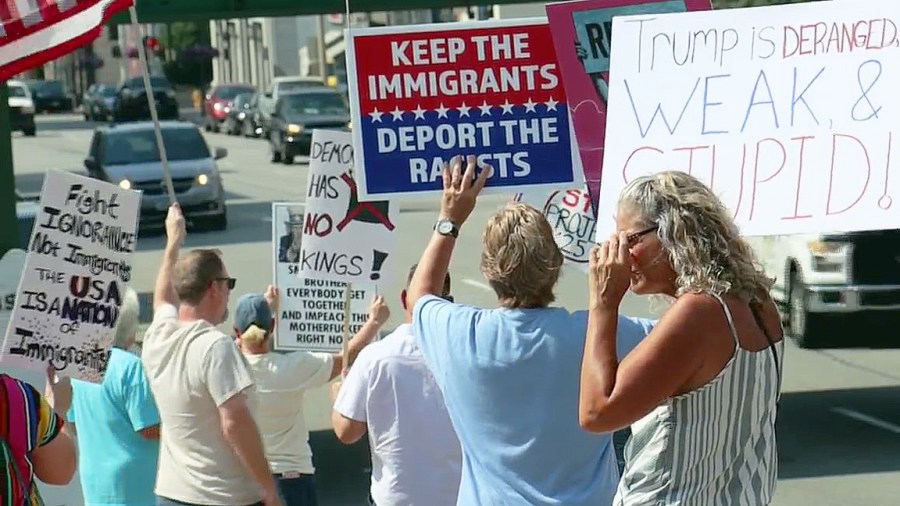Protests Erupt Over Trump Administration’s Budget Bill
Dozens of individuals gathered at the MLK Interpretive Center in Davenport, expressing their discontent with the ongoing policies of the Trump administration. The protest was a direct response to the recent signing of a budget bill by President Trump on July 4, which has sparked widespread concern among many citizens. The event drew attention from both local and national media, highlighting the growing tensions surrounding the administration’s fiscal decisions.
The primary issue at the heart of the protests is the potential cuts to Medicaid and Medicare, two critical programs that provide healthcare support for millions of Americans. Protesters argue that these changes could have severe consequences, particularly for low-income families and elderly individuals who rely heavily on these services. Many expressed feelings of fear and frustration, believing that the administration’s actions are undermining essential social safety nets.
Supporters of the budget bill, however, view the signing as a significant achievement that aligns with the President’s campaign promises. They believe that the legislation represents a step toward fulfilling the administration’s agenda, which includes reducing government spending and promoting economic growth. According to some advocates, the bill will help streamline federal programs and reduce the overall burden on taxpayers.
Despite these claims, independent analyses suggest otherwise. The Congressional Budget Office (CBO) has estimated that the budget package will add over $3 trillion to the national deficit. This figure has raised concerns among economists and lawmakers, who warn that such a large increase could have long-term implications for the country’s financial stability. Critics argue that the administration’s approach may lead to higher interest rates, reduced investment, and slower economic growth.
The debate over the budget bill has also sparked discussions about the role of government in providing essential services. Some argue that cutting funding for programs like Medicaid and Medicare is short-sighted and fails to address the underlying issues facing the healthcare system. Others believe that the current structure of these programs is unsustainable and requires reform to ensure their viability for future generations.
As the protests continue, community leaders and activists are calling for more transparency and accountability from the administration. They emphasize the importance of engaging in dialogue with affected communities and considering alternative solutions that do not compromise the well-being of vulnerable populations. Many are urging lawmakers to revisit the budget provisions and explore ways to protect critical healthcare programs without increasing the deficit.
In addition to the healthcare concerns, the budget bill has also drawn criticism for its impact on other areas of public spending. Some worry that the proposed cuts could affect education, infrastructure, and environmental protections, further exacerbating existing challenges in these sectors. Advocates for these programs argue that investing in them is essential for long-term economic and social development.
The situation highlights the complex nature of fiscal policy and the difficult choices that must be made when balancing budget priorities with the needs of the population. As the debate continues, it remains to be seen how the administration will respond to the growing calls for change and whether meaningful reforms will be implemented to address the concerns of the American people.







